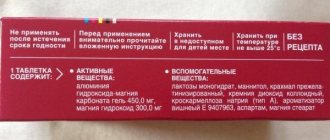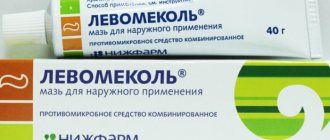Treatment while expecting a baby can be dangerous, as many drugs penetrate into the fetus and can harm its development. Therefore, it is best to be examined before conception and get rid of all dangerous ailments, for example, infections of the genitourinary system.
Many miscarriages in the first trimester are due to an infectious cause. If the disease worsens in the later stages, there is a high probability that the pathogen will reach the baby during childbirth. And therefore, pregnant women who did not get rid of the infection at the planning stage have to take medications that affect pathogenic microorganisms and immunity. One of them is “Genferon”.
Features of the drug
In the pharmacy chain, "Genferon" is presented in the form of suppositories, which have a white-yellowish color and a cylindrical shape. They are sold 5 or 10 pieces per pack and are available in three dosages. The active ingredients of Genferon are alpha-2b interferon, benzocaine and taurine. The taurine content in all suppositories is 10 mg, and benzocaine – 55 mg. But the dosage of interferon is different, and can be 250 thousand, 500 thousand or 1,000,000 IU.
A drug called “Genferon Light” is produced separately. One of its forms is also suppositories, which differ from the usual “Genferon” in both composition and dosage. These suppositories do not contain benzocaine. Taurine is presented in a dose of 5 mg, and the content of alpha-2b interferon is 125 or 250 thousand IU in one suppository.
In addition, Genferon Light is also produced in liquid forms. Nasal drops with this name are intended for patients under 14 years of age, so they are not used in adults. Pregnant women can be prescribed a nasal spray, since this is what is prescribed for adult patients.
This medicine is sold in dark bottles containing 100 doses of medication. Its active ingredients are the same as in Genferon Light candles. One dose of spray contains 1 mg of taurine and 50 thousand IU of interferon.
Genferon and pregnancy
An ultrasound revealed that I had moderate polyhydramnios. The doctor prescribed Genferon 500 thousand units, rectally, at night. The annotation for the drug says - use if the benefit to the mother outweighs the risk to the fetus. something like this. Who was it assigned to? Divider - did you follow the doctor's orders?
They prescribed it to me for another reason, I didn’t listen to the doctor, I didn’t give it.
What do oligohydramnios and geneferon have to do with it? This is an immunomodulatory drug; it helps your body fight infections, but does not actually cure them. Used in combination with antiviral or antimicrobial agents.
One of the reasons for oligohydramnios may be infections, but this is not a fact. Sometimes there is simply no reason, it’s a feature of the body. There is no cure for oligohydramnios.
What I mean is that you first need to find out the cause of oligohydramnios, rule out STDs and prescribe treatment based on the results.
And besides, moderate oligohydramnios is considered a variant of the norm. If the Doppler is normal and there is no developmental delay in the fetus, then nothing needs to be treated.
Genferom can be used by pregnant women only in the 2nd and 3rd trimesters. I myself was treated with these suppositories during pregnancy, thrush appeared, the treatment went well. There were no side effects, the main thing is to use it according to the instructions and on the advice of a doctor.
Operating principle
Interferon, present in all forms of Genferon, has antiviral and antimicrobial activity, and is also capable of stimulating the immune system. Under its influence, phagocytes, T-helper cells and natural killer cells become more active, and B-lymphocytes develop more intensively.
The drug activates cells of all layers of the mucous membrane, which helps to quickly eliminate pathological foci and ensures the normal production of immunoglobulin A, which is called secretory. In addition, under the influence of interferon, the reproduction of viral particles and chlamydia is inhibited.
The second ingredient in suppositories and liquid forms, which is taurine, stimulates healing and tissue repair, strengthens membranes and has antioxidant properties. This substance also reduces inflammatory activity and protects liver cells.
Benzocaine, which is present only in Genferon in the form of suppositories, is a local anesthetic . Under its influence, the permeability of cell walls changes, which leads to blocking the transmission of pain impulses along the nerves.
Suppositories can be used rectally or vaginally. In this case, interferon actively penetrates the tissues of the rectum or vagina, after which it enters the lymphatic system, which determines its systemic effect.
But with intranasal use of liquid "Genferon Light" a predominantly local effect is provided. This solution creates a high concentration of active substances in the foci of infection in the nasopharynx, and systemic absorption of the drug is minimal.
How it works
"Genferon" has a systemic or local complex effect. Its breadth depends on the method of administration and dosage. Thus, vaginal and intranasal use of the product is accompanied by slight absorption of the ingredients into the systemic bloodstream, providing a high concentration of substances on the surface of the mucous membranes.
The systemic effect occurs with rectal use of suppositories. From the rectum, the drug is absorbed into the bloodstream by 80%, concentrated in the tissues closest to the injection site, and enters the lymphatic system. That is why rectal application is used to treat systemic infectious diseases.
The effect of the drug is based on the action of each individual component. For these reasons, only intravaginal use of Genferon during pregnancy is allowed.
Alpha-2b interferon
Alpha-2b interferon is a synthetic human interferon created through genetic engineering. It has a complex effect on the human body.
- Active against viruses. Activates special enzymes inside cells that can inhibit the development and reproduction of viral agents.
- Immunomodulatory effect. It consists of strengthening and accelerating the body’s immune response to foreign genetic material entering it. Promotes the production of phagocytic cells and antibodies. Activates leukocytes on mucous membranes. Stimulates the natural production of immunoglobulin A.
- Antibacterial effect. It consists of enhancing the immune response to increasing concentrations of pathological bacteria.
- Antiproliferative effect. It manifests itself by reducing the activity of microorganisms and their ability to penetrate cell membranes.
Taurine
The substance is an amino acid with regenerating and antioxidant properties. Normalizes metabolic processes in tissues, ensuring their accelerated regeneration. Neutralizes toxic waste products of pathogenic microflora, indirectly helping to reduce the intensity of the symptoms of the disease. Potentiates the action of interferon and maintains its activity.
Benzocaine
The substance is a local anesthetic because it does not penetrate into the systemic bloodstream at all. It disrupts the conduction of pain impulses and prevents their occurrence by disrupting the electrolyte mechanism of signal transmission in nerve endings.
The drug "Genferon" is maximally concentrated in the tissues surrounding the injection site five hours after use. After 12 hours, the product completely loses its activity, after which it is necessary to re-use the drug. The recommended course of treatment is 10 days. To treat severe and recurrent infections, your doctor may prescribe repeat therapy. To eliminate chronic thrush, the remedy is prescribed one suppository, three times a week, for up to three months.
Is it allowed during pregnancy?
The instructions for "Genferon" note that such suppositories are contraindicated in the early stages, but can be used from the 13th week of gestation as prescribed by a doctor. The specialist will assess whether such a drug is needed in the second trimester, and if its use is advisable, he will prescribe suppositories for the expectant mother. In the third trimester, Genferon is also allowed, but only after a medical examination.
The same recommendations are provided for Genferon Light candles. As for the spray, its use is permissible at any stage of pregnancy, since the active components of this form of medication do not penetrate the fetus and do not in any way affect its development in the first weeks of gestation. At the same time, independent use of any of the forms of “Genferon” is undesirable.
If only everything were that simple...
The first trimester is the period of greatest vulnerability of a pregnant woman, since immunity is significantly reduced, the embryo is not protected by anything, and the examination before pregnancy has not been completed (let’s take a situation that is standard for most pregnant women). Most drugs (including immunomodulators) are taboo for pregnant women.
The use of immunomodulatory drugs is prohibited for pregnant women in the early stages, as they pose a risk of increased immunity and rejection of the embryo from the mother's body.
Simply, Genferon is not prescribed due to the possible risk of self-abortion. Attending physicians constantly urge their patients to be careful when using the drug in all trimesters of pregnancy and prescribe the medicine in combination with other therapeutic measures.
When is it prescribed?
Suppositories are used if a woman has:
- genital herpes infection;
- active ureaplasmosis;
- chlamydia;
- infection caused by mycoplasmas;
- candidiasis of the genital organs with frequent relapses;
- papillomavirus infection;
- bacterial vaginosis;
- trichomoniasis;
- cervical erosion;
- inflammation of the ovaries or fallopian tubes;
- mixed vulvovaginitis;
- inflammation of the urethra;
- gardnerellosis;
- cervicitis.
The reason for using Genferon Light spray in pregnant women is the flu or other respiratory infection caused by viruses. If a woman has been in contact with a sick person, the medication can also be prescribed prophylactically.
Pharmacological properties
Genferon Light is a combination drug that has local and systemic effects. The drug has antiviral, anti-inflammatory, immunomodulatory, antibacterial, antioxidant, antiproliferative, membrane stabilizing and local regenerating properties.
Pharmacodynamics
The main active ingredient of Genferon Light is recombinant human interferon alpha-2b, which is produced by strains of the bacterium Escherichia coli with the human interferon alpha-2b gene specially introduced into them (using genetic engineering).
Interferon alpha-2b is able to block the reproduction of viruses at the stage of synthesis of specific proteins. When used intranasally, the drug prevents infection by the virus of uninfected cells of the nasal mucosa, which is the site of invasion of pathogens, as well as the primary inflammatory focus of respiratory infections.
Immunomodulatory properties are manifested by strengthening cell-mediated reactions of the immune system, which increases the body's immune response to the invasion of foreign agents. This effect is achieved due to the activation of NK cells (natural killer cells), CD8 T killer cells, enhanced differentiation of B lymphocytes and an increase in their antibody production.
In addition, interferon alpha-2b increases the expression of MHC (major histocompatibility complex) class I molecules, which ultimately increases the ability of cells of the immune system to recognize infected cells. The drug also activates phagocytosis and cells of the mononuclear phagocyte system (monocyte-macrophage system).
The antibacterial effect of the drug is mediated by the reactions of the immune system, which are enhanced by the influence of interferon.
The second active component of Genferon Light, taurine, normalizes metabolic processes in tissues, promotes faster recovery and regeneration of mucous membranes damaged by the inflammatory process. Taurine is a strong antioxidant, so it directly interacts with reactive oxygen species, the accumulation of which enhances pathological phenomena. Taurine preserves the biological activity of interferon and enhances the therapeutic effect of the drug.
Pharmacokinetics
With the intranasal route of administration (Genferon Light in the form of drops and sprays), a high concentration of interferon is created at the site of infection. The drug has a pronounced immunostimulating and local antiviral effect. Systemic absorption is negligible (human recombinant interferon alpha-2b is detected in small quantities in the blood and lung tissue).
With the rectal route of administration (Genferon Light in the form of suppositories), the bioavailability of the drug is high (more than 80%), so not only a local, but also a pronounced systemic immunomodulatory effect is achieved.
In the case of intravaginal use, due to the significant concentration in the infectious focus and fixation of interferon on the cells of the mucous membrane, a pronounced local antibacterial, antiviral and antiproliferative effect is achieved. But since the absorption capacity of the vaginal mucosa is low, the systemic effects of the drug are insignificant.
Contraindications
In addition to the first trimester, the use of "Genferon" is also prohibited in case of hypersensitivity to any ingredient in the suppositories. If the expectant mother has autoimmune or allergic diseases, the drug is prescribed with increased caution. If a woman has any chronic diseases or problems with pregnancy, the issue of treatment with Genferon is considered on an individual basis. The contraindications for using Light suppositories are the same, but for the use of a spray, nosebleeds will be an additional limitation.
Genferon by trimester
1st trimester
This period, as potentially risky for the use of medications, has already been written thousands of times with warnings not to use medications, or to use them very carefully under the supervision of a doctor. And, of course, there can be no talk of any self-medication. But pregnant women, who perceive the immunomodulator as a completely safe remedy, sometimes lose their vigilance and use it in the first weeks of pregnancy. This is absolutely forbidden to do, since you are jeopardizing the continued existence of your baby.
The spray form is considered more or less safe, since the substance is concentrated on the mucous membranes and its penetration into the bloodstream is minimal.
Attending physicians do not prescribe Genferon until the 12th week of pregnancy inclusive; therapy is carried out with other drugs or folk remedies.
2nd trimester
The drug is prescribed with caution, the dosage is selected by the doctor for each patient individually.
3rd trimester
Use is possible under strict medical supervision.
Side effects
In some patients, the use of Genferon causes a skin rash or other allergic reaction. In addition, local symptoms of irritation, such as itching or burning, are possible after inserting the suppository into the vagina. As a rule, all unpleasant manifestations disappear within 1-3 days after discontinuation of the drug.
In rare cases, headaches, fatigue, muscle pain, loss of appetite, increased sweating, fever and other negative symptoms are observed during treatment. They may indicate either intolerance to the medication or an excessive dosage, so if you feel unwell, you should consult your doctor.
Useful video about the herpes virus during pregnancy
We recommend reading: Sinupret during pregnancy - a safe drug for the complex treatment of colds
Genferon during pregnancy - revealing secrets about pregnancy on Pitanie4Zdravie.ru
Pregnancy makes a woman truly beautiful. But during pregnancy, many questions arise that need to be answered. Especially for you, in the “Pregnancy from A to Z” section, we publish interesting and useful articles about pregnancy, so that this wonderful time for you will be as “problem-free” and joyful as possible.
You can also find here the main signs of pregnancy, how the baby’s fetus develops at different stages of pregnancy, understand what is possible and what is not possible at different stages of pregnancy. Learn more about the effect of various foods, vitamins (for example, the effect of folic acid) on pregnancy.
Instructions for use
For women in the Genferon position, it is usually prescribed intravaginally, but rectal use is also acceptable. The suppository, freed from packaging, is inserted into the vagina twice a day in the dosage prescribed by the doctor, which depends on the severity of the infection and inflammation. The duration of therapy should also be determined by a specialist, but most often the course of using Genferon is 10 days. If the disease is chronic, the drug can be used according to other schemes, for example, use every other day for one month.
"Genferon Light" in suppositories for pregnant women is used in a dosage of 250 thousand IU of interferon per suppository. The medicine, like regular Genferon, can be administered either into the rectum or vaginally. The frequency of use of the drug in most cases is twice a day, at intervals of 12 hours. A single dosage is one suppository, and the duration of treatment is usually 10 days.
"Genferon Light" in the form of a spray is sprayed into the nasal cavity. One press releases one dose of the drug. At the first symptoms of acute respiratory infections and colds, the expectant mother is injected with a dose of the drug into each nostril three times a day.
The course of treatment often lasts 5 days. If the medication is used prophylactically, in case of hypothermia or after contact with a patient with ARVI, spraying the solution in the same dosage is carried out twice a day for 5-7 days.
Instead of "Genferon", the doctor may prescribe other medications containing interferon to a pregnant woman . These include “Grippferon”, “Kipferon”, “Viferon”. They have a similar effect on the body, so such drugs are in demand for the same diseases. They are available in the form of suppositories, gel, ointment, spray and nasal drops. The use of such medications in the 1st trimester is prohibited, and in the 2nd-3rd trimester they should be used only as prescribed by a specialist.
The use of “Genferon” and the drug “Genferon Light” during the period of waiting for a baby receives mostly positive feedback. Women note that such medications are harmless to the fetus, well tolerated, and effective. However, sometimes you can read negative reviews in which they complain that the drug did not help. This occurs in chronic and severe diseases, when stronger medications are required.
Instructions for Genferon®a in spray form
Genferon® Light (aerosol) is used topically, applied directly to the site of infection. A single dose of use for pregnant women is one press of the dispenser. However, the frequency of use of the aerosol, as well as the dosage, is determined by the attending physician:
- For the treatment of existing viral pathologies: 1 dose 3 times a day for 5 days. The medicine is injected directly into the nasopharynx.
- For prevention: 1 dose 2 times/day. The course of treatment is 5-7 days.
The nasal form of the drug can be used from the first day of conception.
In some cases, the use of Genferon® Spray is recommended to be combined with rectal administration of suppositories.
There is another spray treatment regimen, which states that the medicine should be used every 15-20 minutes for 3-4 hours. Further, the frequency of use is reduced to 1 dose 4-5 times a day for 4 days. The maximum daily dose of Genferon® Light aerosol should not exceed 10 doses.
Prescribed for therapy:
- Primary/recurrent damage to the skin and mucous tissues.
- Genital herpes.
- Herpes zoster.
There are no recommendations for prescribing Genferon® ointment during pregnancy, so it is necessary to use the drug for this category of patients only in cases where the benefits outweigh the expected risk to the baby. As with the options described above, the use of ointment from the 2nd trimester is allowed.
Dose of medication: a small amount of the product is applied in a thin layer to the problem area 5 times every 4 hours throughout the day. The duration of treatment varies from 5 to 10 days.
Genferon during pregnancy
All women fear treatment during pregnancy, but in many cases it can be avoided if, even at the stage of pregnancy planning, you undergo a full examination and get rid of all diseases and ailments. This is especially true for infections of the urogenital tract - they are very dangerous for the fetus. A fairly large percentage of miscarriages in the first trimester occur precisely for this reason. And during childbirth, there remains a high risk of infection of the child, so if you were not cured before pregnancy, you will have to do it now. For example, with the help of Genferon.
Genferon is a suppository for the treatment of infectious and inflammatory urogenital diseases, such as:
- genital herpes (genital herpes viral infection, herpes simplex);
- chlamydia (chlamydial sexually transmitted diseases);
- ureaplasmosis;
- mycoplasmosis (infection caused by mycoplasma);
- recurrent vaginal candidiasis (candidiasis of the vulva and vagina);
- gardnerellosis;
- trichomoniasis;
- human papillomavirus infections;
- bacterial vaginosis;
- erosion and ectropion of the cervix;
- cervicitis (inflammatory diseases of the cervix);
- vulvovaginitis;
- bartholinitis (inflammatory diseases of the Bartholin gland);
- adnexitis (salpingitis and oophoritis);
- urethritis;
- prostatitis (inflammatory diseases of the prostate gland);
- balanitis;
- balanoposthitis.
Genferon is prescribed in combination with other therapeutic agents and measures, including antibiotics and other antibacterial drugs - in this case its effectiveness increases. Also, at the same time, the woman is prescribed vitamins E and C - they enhance the effect of interferon, which is part of these suppositories.
The properties of the drug are determined by its components - active substances:
- interferon alpha-2 – has antiviral, antimicrobial, immunomodulatory properties;
Indications for use
A disease of the genitourinary system of a pregnant woman can negatively affect the condition of the fetus; this is dangerous when the child passes through the birth canal. All pathogenic flora accumulated during the course of the disease will settle on the body and in the baby’s body, so treatment cannot be delayed.
In the first half of pregnancy, an infection in the genitourinary system can lead to miscarriage. Therefore, it is necessary to cure the disease in time for the safe development of the baby. Genferon Light can help cope with urogenital infection.
Use of Genferon Light suppositories during pregnancy
Suppositories can be used to treat infectious diseases of the genitourinary system in the 2nd trimester of pregnancy. The system of interaction between the three elements of the drug promotes the activation of enzymes in the mother’s body, which prevent the virus from spreading. This stabilizes the activity of immune cells and increases the child’s body’s ability to resist bacterial infection.
Diseases that can be treated with Genferon include genital herpes, chlamydia, ureaplasmosis, mycoplasmosis, and recurrent vaginal candidiasis.
Genferon Light suppositories during pregnancy are administered both rectally and vaginally.
Use of Genferon spray during pregnancy
The spray is prescribed for the treatment of ARVI. It is produced in a bottle with a nozzle through which the medicine is injected into the nose and evenly distributed throughout the mucous membrane, which allows interferon to quickly find the source of infection and eliminate it. The advantage of Genferon spray over other nasal agents during pregnancy is that it is not absorbed into the tissue, but acts only on the mucous membrane.
Genferon suppositories during pregnancy
Genferon suppositories are a combination of three active substances:
- recombinant human interferon alpha-2b;
Recombinant interferon alpha-2b is synthesized by genetically modified strains of bacteria in the laboratory. Its molecular structure is a copy of human protein. Natural interferon is produced in response to the introduction of viruses into the body, leading to an increase in the natural immune response. [1]
The peculiarity of viruses is that they reproduce only in host cells. Outside the human or animal body, the microbe is not capable of division.
The protective protein activates three reactions aimed at fighting infection:
- Stopping virus division and exiting the infected host cell.
Stimulation of the immune system, leading to the synthesis of leukocytes - white blood cells.
- Strengthening the production of antibodies - protective molecules that neutralize toxins, viruses and bacteria.
Taurine is an amino acid containing sulfur. The active substance improves metabolism, promotes enhanced tissue regeneration, maintains proper hydration and electrolyte balance in the body's cells. The medication accelerates the elimination of toxic metabolic products.
Taurine maintains interferon activity, preventing its breakdown. The amino acid has an antioxidant effect. The drug promotes the accumulation of energy in cells.
Benzocaine is the third component of the suppository. The medicine eliminates pain due to its anesthetic effect. The medication does not have a systemic effect on the human body.
Characteristics of the drug
Genferon is a new generation medicine obtained as a result of scientific research by Russian medical scientists. It is an antibacterial, antimicrobial and antiviral drug with local action.
Genferon is produced by Biocad in Russia and meets international standards, which guarantees its safe and effective use.
Composition and mechanism of action
Genferon includes a complex of active substances:
- Alpha-2-interferon is a substance that activates leukocytes, increasing immunity at the cellular level. It eliminates foci of infection, restores the level of immunoglobulin, and prevents the emergence of viruses, fungi and bacteria.
- Taurine – has antioxidant and anti-inflammatory effects.
- Anestezin - acts as a local anesthetic, blocks pain, reduces itching and burning.
In addition to the three main components, candles contain emulsifiers, which help difficult-to-mix substances interact, and solid fats, which serve as the basis for candles.
Currently, a whole line of drugs is produced in the form of suppositories and sprays. Genferon Light nasal spray is intended for the treatment of acute respiratory diseases. In the form of suppositories, the medicine is prescribed for infections, including those of the genitourinary system in pregnant women.
Each component of Genferon has a local effect.
As a result of the interaction of three active substances, the therapeutic effect of Genferon Light suppositories during pregnancy is enhanced many times:
- Interferon activates the action of elements that are responsible for eliminating foci of infection and restores secretory immunoglobulin A.
- Taurine is included in the suppository as a drug that increases the effect of interferon due to its antioxidant properties and accelerates the restoration of damaged tissue.
- Anestezin blocks pain in all nerve fibers, thereby easing the general condition.
The drug is convenient because it is available in different dosages.
Release form and expiration date
The drug is available in the form of vaginal and rectal suppositories. Pharmacies offer suppositories with different dosages - 0.25, 0.5 and 1 million international units.
Genferon light contains two components - interferon and taurine. The medication is available in the form of a nasal spray and suppositories for rectal and vaginal use.
The shelf life of the medicine is 24 months.
After its expiration, taking the medication is prohibited. Suppositories should be stored in the refrigerator at an optimal temperature of 2 to 8 degrees Celsius.
Pharmacodynamics and pharmacokinetics
Genferon - nasal drops intended for children.
The features of their pharmacokinetics and pharmacodynamics are as follows:
- When administered into the nasal cavity, a high concentration of interferons is created within a few minutes, so this drug can be used as an emergency protective measure upon contact with an infected person or when the first symptoms of the disease appear.
- The bioavailability of the active component is high and is about 80%.
- Interferon is also able to enter the brain through the sheaths of the cranial nerves, exerting immunomodulatory and regulatory effects.
- Systemic absorption is insignificant, a small content of the active component is observed in the lungs and in the bloodstream. In this case, a weak systemic immunomodulatory effect occurs.
- An increase in the concentration of interferons also occurs in the secretions of the oral cavity, due to which the hyperemia of the pharynx is reduced.
- Metabolism of part of the absorbed drug occurs mainly in the kidneys.
- The half-life is approximately 2 hours.
As laboratory studies show, the introduction of interferon into cell culture leads to a decrease in the destructive effects of viruses in 70-76% of samples. In clinical practice, suppression of the development of infectious diseases is observed in 80% of cases.
Indications for use
The medicine has a wide range of indications for use. Doctors recommend using Genferon in the treatment of urogenital infections: chlamydia, trichomoniasis, mycoplasmosis. The drug increases local immunity, promoting the formation of resistance to microorganisms.
Genital herpes is a common indication for the use of Genferon. The medication reduces the viral load and promotes the healing of old elements of the rash. The use of suppositories prevents the formation of new herpetic blisters on the genitals.
Vaginal candidiasis or thrush is another indication for using the drug. The medication enhances the natural defense reactions of the woman’s body, helping to get rid of pathogenic fungi.
According to clinical trials, the drug is effective in the treatment of genital HPV infection. The substances included in the composition stop the division of the microorganism, helping to stabilize the vaginal flora. [2]
Genferon during pregnancy: features of use
A large number of different bacteria and viruses constantly attack our body. Fortunately, nature has made sure that most of these microorganisms cannot harm our health. But it is impossible to completely eliminate the possibility of infection. This is especially dangerous during pregnancy, since the infection can harm the baby, and many medications are contraindicated during this period. Modern medicine offers us a remedy that can fight various infections and viruses - Genferon. The main thing is that it can be used during pregnancy.
Instructions for use
The dose and frequency of taking the medication is selected by the attending physician. Independent use of Genferon is not recommended. Pregnant women after the 13th week are advised to use suppositories containing 0.25 million international units.
To treat diseases of the genital organs, doctors prescribe vaginal suppositories. They should be used for 10 days twice a day. In the presence of chronic recurrent infection, it is recommended to increase the dose to 750,000 IU per day in three doses.
For acute respiratory diseases, the use of rectal suppositories is indicated. The standard dosage is 1 suppository twice a day. The duration of the course of treatment is five days.
For the treatment of recurrent cystitis, a rectal type of drug is used. During an exacerbation, doctors prescribe one suppository twice a day. The duration of the course is 10 days. To prevent relapses, a longer period of one month is indicated.
Before using Genferon, the expectant mother should wash her hands with soap and dry with a paper towel. The suppository is removed from the protective packaging and, using the index finger, is inserted into the vagina or rectum to a depth of 4-5 centimeters. For convenience, you should lie on your side and bend your legs at the knee joints.
After administering the suppository, it is recommended to take a lying position for 30-40 minutes. After the procedure, you should wash your hands thoroughly.
Who was prescribed GENFERON 500,000 IU suppositories?
help me figure it out, I was prescribed GENFERON 500,000 IU suppositories for ureplasma and the doctor said to put them in the rectum, but the instructions say vaginally, I don’t know what to do, where to put them.
My good girls, if you were prescribed these suppositories, how did you use them?
I’m very afraid that I might harm the child... Because the instructions say:
Use during pregnancy and lactation:
Can be used in the second half of pregnancy,
if the benefit of the therapy exceeds the possible risk to the fetus.
next message Jargon I was on the site March 20, 20:16 Russia, Penza I am 27 years old. I was diagnosed with HPV 3 years ago. I am treated only with immunoboosting drugs, Viferon, Genferon, vitamins and that’s it. But that doesn't help. Recently they also recommended Indinol, it suppresses HPV, so I’m wondering whether to take it or not? Who knows the drug, what can you say? Anastasia I was on the site May 14, 06:54 Russia, Orenburg Try drinking it. They helped me. Even though I took everything at once. Whatever the doctor prescribed was what she was treated with. As a result, I came to Indinol. Only after these capsules did my tests become good. And finally the papillomas stopped popping up Dasha Portnova I was on the site April 27, 12:43 Russia, Moscow
Genferon is often prescribed during pregnancy, from the 12th week. These suppositories can be placed either vaginally or rectally, depending on how your doctor prescribed them.
Russia, Perm
Genferon suppositories are a complex drug with a very wide range of applications. These suppositories are prescribed by pediatricians, gynecologists, ENT specialists, therapists, dermatologists, dermatovenereologists, urologists. Genferon suppositories can be administered both rectally and vaginally!!!!!!
Suppositories are prescribed for viral infections such as ARVI, influenza, pharyngitis, laryngitis......and for urogenital infections - candidiasis, urea-mycoplasmosis, HPV, etc.
Suppositories are used in pregnant women from the 13th week, NOT EARLIER!!!!!!!! POSSIBLE 250,000m, and 500,000m. The candles have a hypoallergenic composition, and benzocaine, an analgesic, is also added to the composition of 500,000 IU.
For ureaplasmosis and mycoplasmosis, Genferon 500,000 IU is prescribed 2 times a day vaginally for 10 days!!! + an antibacterial drug.
This scheme is used by gynecologists-obstetricians and is clinically proven.
The drug Genferon is harmless for pregnant women, especially since it contains taurine, which has a beneficial effect on the development of the fetus.
if you have any additional questions call 89127802408
Olga Interesting for future and current mothers. How many children will you have? There is very interesting information on this issue Irinka I was on the site May 11, 15:19 France, Amiens
Hello Olya! Now I am actively searching for information about the treatment of ureaplasma. I read on the Internet that if the title - i.e. the quantity does not exceed 10,000, then it is not necessary, although I no longer know what to do, my quantity is 9749? Did you take antibiotics?
Contraindications
The drug should not be used by persons who have allergic reactions to the components. They manifest themselves in the form of skin rash, swelling, and itching. To prevent unwanted effects, you should carefully monitor the body's reaction on the first day after starting use.
Genferon is contraindicated in expectant mothers with autoimmune diseases.
These include systemic lupus erythematosus, systemic scleroderma, rheumatoid arthritis, dermatomyositis, chronic glomerulonephritis. Using the drug increases the risk of exacerbation of these complications. The mechanism of the adverse reaction is associated with an increase in antibody synthesis while taking interferon.
The medication is prohibited for use by patients with allergic pathology in the acute stage - bronchial asthma, seasonal hay fever, dermatitis. Genferon enhances the body's pathological reaction to an irritating substance, leading to a worsening of the disease.
Contraindications and side effects
The drug has a minimal number of contraindications. These include:
- exacerbation of autoimmune diseases; intolerance to one of the components of the drug; exacerbation of allergic diseases.
Not every product can boast such a short list of contraindications. For expectant mothers, this is of particular importance, since it is very difficult to choose a drug that is highly effective, is not contraindicated during pregnancy, and has a minimum set of contraindications.
Side effects occur only if the patient has intolerance to one of the components of the drug. In this case, you may experience:
- increased body temperature; allergies in the form of itching and burning; fatigue; headache; pain in joints and muscles; increased sweating; chills.
Side effects can also be caused by incorrect dosage of the drug.
Drug interactions
Genferon Light is well tolerated by patients, side effects occur very rarely. In isolated cases, local allergic reactions (itching and burning sensation) are possible, but these phenomena are reversible and go away on their own within 3 days after discontinuation of the drug. To date, no life-threatening or severe adverse reactions have been reported.
Intranasal forms of Genferon Light are not recommended for use simultaneously with vasoconstrictors, as this causes even greater dryness of the nasal mucosa.
The greatest effectiveness of Genferon Light is achieved when used as part of complex treatment. The use of other antiviral, antibacterial and fungicidal agents leads to mutual potentiation of action, and this makes it possible to achieve the best overall effect of therapy.











